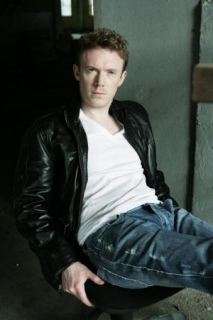|
Back
Two Poems for Orchestra New York
Avery Fisher Hall, Lincoln Center
03/03/2011 - & March 4, 5, 2011
Karol Szymanowski: Violin Concerto No. 1, Opus 35
Gustav Mahler: Symphony No. 4
Lisa Milne (Soprano), Glenn Dicterow (Violin)
New York Philharmonic Orchestra, Daniel Harding (Conductor)

D. Harding (© Julian Hargreaves)
Was it British self-effacement or sheer bravado?
The much heralded young British conductor Daniel Harding should have reasonably started his premiere performance with the New York Philharmonic by playing a work that would show his powers to the fullest. Instead, he began with a relatively rare composer, in in a very rare concerto showing off the prowess of New York Phil concertmaster Glenn Dicterow more than himself.
Not that Mr. Harding was merely accompanying Mr. Dicterow. Karol Symanowski’s First Violin Concerto is almost never played, since it is pure atmospherics, since it makes little formal sense, and since it seems far more the music of Scriabin than the Polish master.
But what a challenge for Mr. Dicterow! He is probably the greatest orchestral musician in the world, having been with, shaped, given the voice and heart to the Phil as Concertmaster for two decades. He has played countless solos with the Orchestra, and seems to meet each challenge with grace and ease.
The Szymanowski an equal partnership of soloist and orchestra. The latter provides the tremolos, the calls, the Impressionist/cum mystical nature calls and rustlings. The soloist, playing nearly the entire piece in the highest range, is more a soprano singer than a string soloist.
The entire piece leaves an impression of perfumed sensuality, rather than truly mighty musical work, but such sensuosity is all too rare in concert halls.
Mr. Harding obviously did a good job, but Glenn Dicterow was the star, almost casually floating above the orchestra. His tone was singularly correct for this music, balancing these high notes with the minimum vibrato, the hint of hypnotic seductions and dark velvet rooms. There’s no other way to describe the piece.
Daniel Harding had his own moment in the sun with Mahler’s Fourth. Like the Szymanowski, this is as much a poem as a piece of music. Here, though, the poem is down to earth, a lilt to the simple pleasures of life more than Szymanowski’s ode to the things which thrill our senses.
The weather forecast for Mahler’s first movement could have been “Sunny and breezy with the occasional earthquake and tornado. But these will pass.” Mr. Harding took it at like a delightful stroll, an adventure of sounds and melodies. As he did throughout, he didn’t so much play wind consort harmonies as allow a soloist–usually horn or oboe–to dominate. Thus, like the loveliest of pictures, it was a new vantage point, another way to see the landscape.
Of course it was Sheryl Staples, taking the place of Concertmaster Dicterow, who played the amiable solo in the second movement, a jaunty little trip on that famous mistuned violin. This was followed by the depth of the Adagio, with the single most incredible measures ever written by Mahler in the grand climax.
At the end, another British subject, Lisa Milne, sung of a child’s heaven, at first dramatically, and, for the last verse, with a soprano voice that was total prayer. Fittingly, Mr. Harding extended that final E in the basses for almost a minute, then keeping his hands raised for another 30 seconds before the applause.
His finesse, confidence and obvious rapport with the orchestra were splendid, but it was his lyrical poetry which will remain long after his baton was lowered.
Harry Rolnick
|